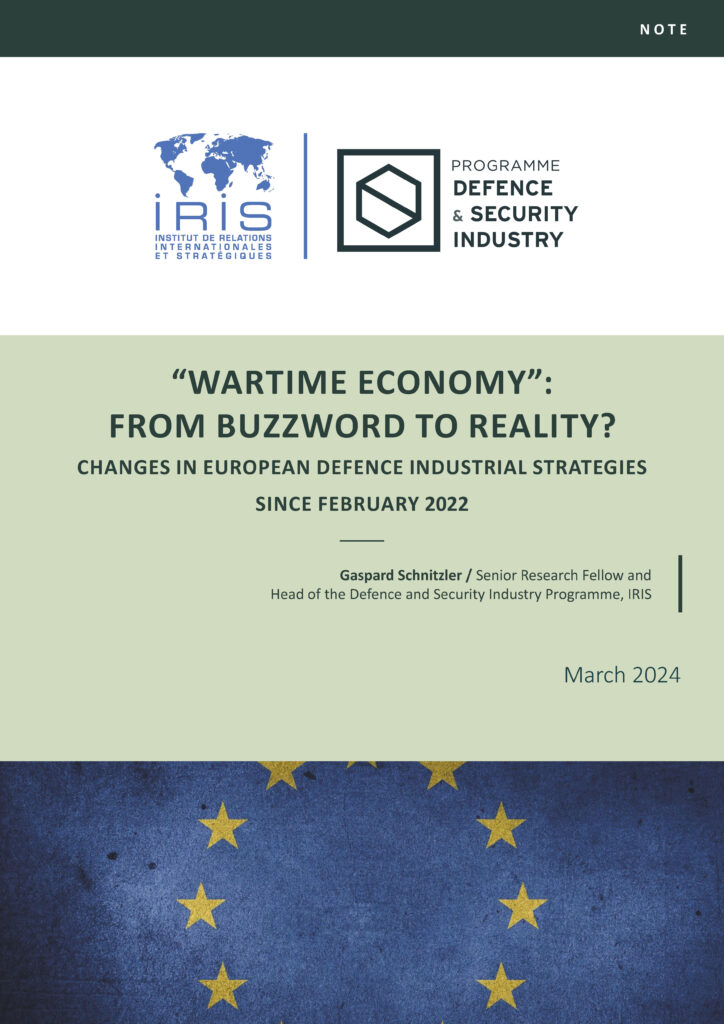Notes / Industrie de défense et de haute technologie
28 mars 2024
« Wartime Economy »: From Buzzword to Reality? Changes in European Defence Industrial Strategies since February 2022

This note assesses the main changes in defence industrial strategies that have taken place since February 2022 in four European countries: France, Germany, Italy, and the UK. It shows that the level of awareness of the need to support the ramp-up of the defence industry, as well as the evolution of defence industrial strategies, varies from one country to another. This is reflected both in official speeches and in the measures that have been announced and/or implemented. France and the UK seem to be the further ahead in their thinking and action, than Germany and Italy. However, there is a clear gap between words and deeds. In most cases, concrete actions in favour of the industry remain limited.
In the four countries studied, the main levers identified to support the ramp-up of the defence industry include: increasing orders and building up stockpiles to give the industry long-term visibility, reforming procurement procedures to speed up contracting, strengthening the security of supply and reducing external dependencies by relocating part of production, supporting export to make the defence industry more competitive, investing in professional training to address the human resources issue, as well as supporting the defence industry’s access to private finance.
Concrete measures implemented so far include reducing technical specifications to cut equipment costs and lead times, identifying and mapping bottlenecks in supply chains, releasing funds to support the relocation of particularly critical activities, and implementing multiannual framework contracts for ammunition and missiles…

